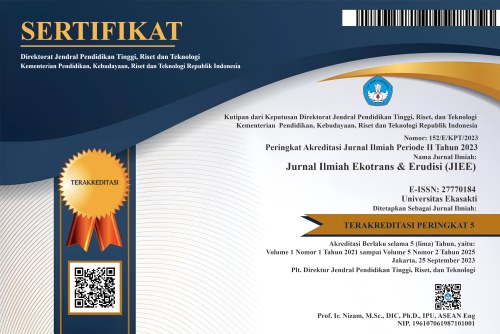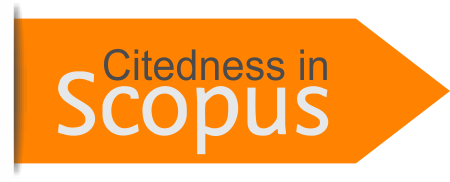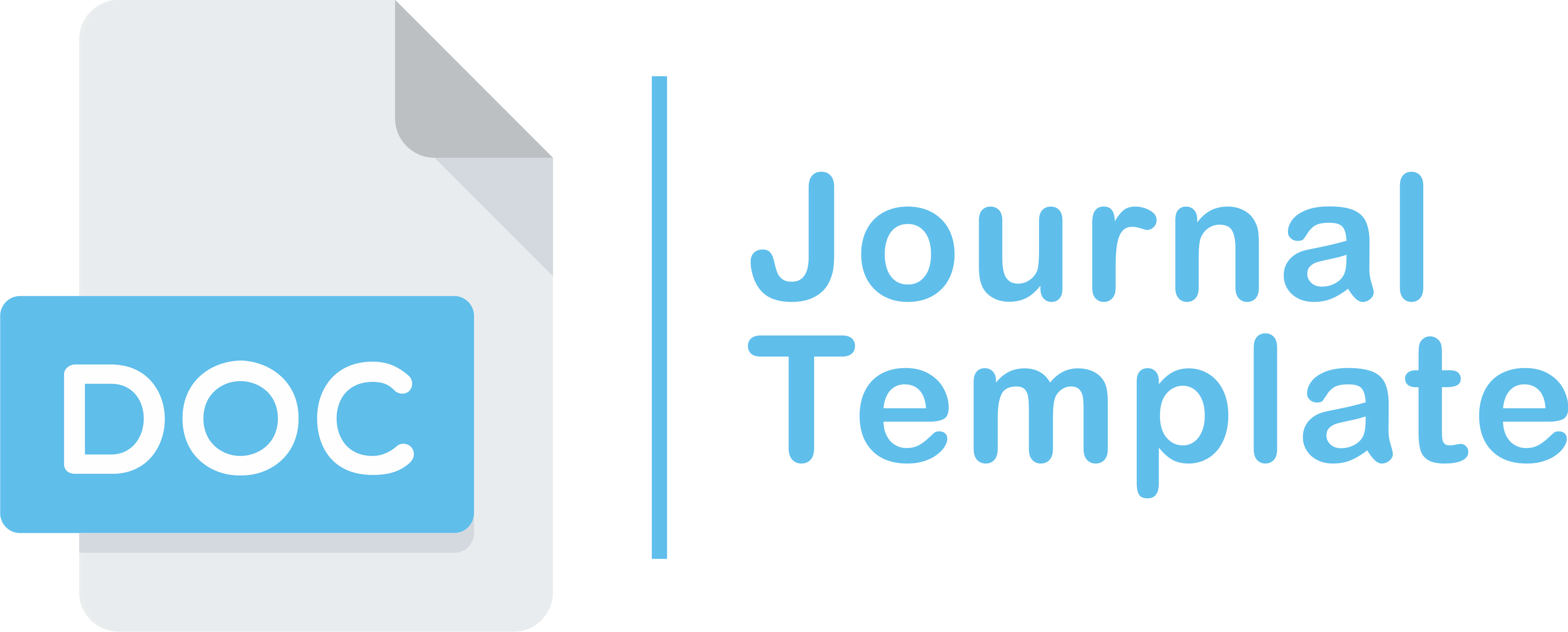Analysis Of The Effect Of Organizational Culture On Performance Of Employees (Case Study Of The Kominfo Office Of Pariaman City)
DOI:
https://doi.org/10.69989/c26ppm57Keywords:
Organizational culture, Employee performanceAbstract
This study aims to analyze, Influence Organizational Culture Against Employee Performance At the Office of Communications and Information Technology of Pariaman. This research is a quantitative research that shows a causal relationship. The sample in this study were 47 employees. Data collection techniques used were observation, questionnaire and documentation. Data analysis techniques used are descriptive statistical analysis using percentages, averages, and standard deviations and for inferential statistical analysis using data normality tests, simple linear regression analysis, and product moment correlation analysis. The results of the study show that the organizational culture is in a very good category in terms of indicators, namely: Innovation and Courage to take risks; Attention to detail; Results oriented; Human oriented; Team oriented; Aggressive; and stable. Employee performance is in a very good category in terms of indicators of discipline of service personnel, responsibility of service personnel, ability of service personnel, politeness and friendliness of officers, based on simple linear regression analysis shows that there is an influence of organizational culture on employee performance at the Pariaman City Communication and Information Agency Pariaman City. From the results of product moment correlation analysis obtained a significant level of relationship between the influence of organizational culture on the performance of employees at the Office of Communication and Information Office of , Pariaman City with the Strong category.
Downloads
References
Abdullah, I. (2003). Penelitian berwawasan gender dalam ilmu sosial. Humaniora, 15(3), 265–275.
Akib, H., & Si, M. (2008). Snapshot Dampak Kebijakan Publik dalam Program Pengentasan Kemiskinan. Makalah Tidak Dipublikasi. Malang.
Azizy, A. Q. A. (2007). Change management dalam reformasi birokrasi. Gramedia Pustaka Utama.
Dharma, S., & Akib, H. (2009). Kewirausahaan Berbasis Kreatifitas Dan Inovasi. Jurnal Pendidikan Dan Kebudayaan, 15.
Ismail, A., Sulur, A. H., Akib, H., & Salam, R. (2016). Snapshot of Society Social-Economic Welfare based on Human Development Index in Polewali Mandar Regency, Indonesia. International Conference on Public Organization VI (ICONPO VI), 847–858.
Marcella, J. (2004). Arsitektur & perilaku manusia. Grasindo.
Moeljono, D. (2003). Beyond leadership. Elex Media Komputindo.
Mulia, R. A. (2019). Analisis Faktor-Faktor Yang Mempengaruhi Kualitas Laporan Keuangan Pemerintah Daerah (Studi Pada Pemerintah Kabupaten Pasaman Barat). Jurnal EL-RIYASAH, 9(1), 15.
Mulia, R. A. (2019). Influence of Public Policy, Participation of Community and Education Level To Public Welfare in Padang Pariaman District. Jurnal EL-RIYASAH, 10(1), 37. https://doi.org/10.24014/jel.v10i1.7566
Mulia, R. A., & Saputra, N. (2021). Systematic Literature Review: Determination of Government Policy in Health and Education Development for Improved Human Capital. Jurnal EL-RIYASAH, 12(1), 92–107.
Nurbarani, M. (2009). Reformasi Birokrasi Pemerintah Kota Surakarta. UNIVERSITAS DIPONEGORO.
Soegandhi, V., Sutanto, E., & Setiawan, R. (2013). Pengaruh kepuasan kerja dan loyalitas kerja terhadap organizational citizenship behavior pada karyawan PT. Surya Timur Sakti Jatim. Retrieved From.
Suryana, Y., & Bayu, K. (2012). Kewirausahaan: Pendekatan Karakteristik Wirausahawan Sukses Ed. 2. Kencana.
Downloads
Published
Issue
Section
License
Copyright (c) 2021 Rizki Afri Mulia, Rianda Prima Putri, Nika Saputra (Author)

This work is licensed under a Creative Commons Attribution-ShareAlike 4.0 International License.
Copyright Notice
An author who publishes in the journal "Jurnal Ilmiah Ekotrans & Erudisi" agrees to the following terms:
Author retains the copyright and grants the journal the right of first publication of the work simultaneously licensed under the Creative Commons Attribution-ShareAlike 4.0 License that allows others to share the work with an acknowledgement of the work's authorship and initial publication in this journal
Author is able to enter into separate, additional contractual arrangements for the non-exclusive distribution of the journal's published version of the work (e.g., post it to an institutional repository or publish it in a book) with the acknowledgement of its initial publication in this journal.
Author is permitted and encouraged to post his/her work online (e.g., in institutional repositories or on their website) prior to and during the submission process, as it can lead to productive exchanges, as well as earlier and greater citation of the published work (See The Effect of Open Access).
All materials in this site are protected by the law. It is prohibited to quote a part of or all of this website contents for commercial purposes without the permission or consent of the editors.
If anyone finds one article or more in this journal violate or potentially violate one’s copyrights, please report to us through e-mail of Principle Contact.
Legal-formal aspects of accessing any information and manuscript in this journal website refer to the provision of license Creative Commons Attribution-Share Alike (CC BY-SA). Read more about the Creative Commons Attribution-ShareAlike 4.0 Licence here: https://creativecommons.org/licenses/by-sa/4.0/.
All information available in 'Jurnal Ilmiah Ekotrans & Erudisi' is academic in nature. 'Jurnal Ilmiah Ekotrans & Erudisi' is not responsible for loss due to the abuse of information in the website.
Information
Notice about change in the copyright policy of the journal 'Jurnal Ilmiah Ekotrans & Erudisi' : "From Volume 1, Nomor 1 onwards the copyright of the article published in the journal 'Jurnal Ilmiah Ekotrans & Erudisi' will be retained by the author"
Privacy Statement
The names and email addresses entered in this journal site will be used exclusively for the stated purposes of this journal and will not be made available for any other purpose or to any other party.




































